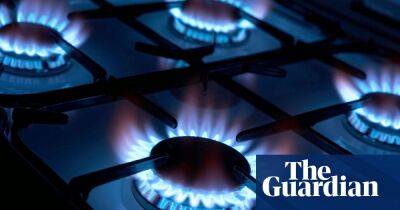Fiddling with the energy price cap is the tip of the iceberg. More needs to be done
Great news, eh? The energy price cap will rise again in October and then there will be only another three months, rather than six, to wait until the next increase in bills. If that does not seem like an unalloyed benefit, Jonathan Brearley, the chief executive of Ofgem, would like you to remember that energy costs can fall as well as rise. The proposed shortening of the timetable for adjusting the price cap would mean “any price falls would be delivered more quickly to consumers”, he said.
That is true, of course: the cap works off wholesale prices in the preceding period, so a faster recalculation will reduce the lag effect, whatever the direction of the move. This suits the energy regulator’s purposes, one suspects, because its next worry – when wholesale energy prices do eventually fall – is being blamed for delays in lowering bills. Quicker adjustments may marginally reduce the sense that prices go up like a rocket but come down like a feather.
Does the switch make economic sense, though? Probably. But Ofgem would be wise not to overstate matters. There is a benefit to companies in the form of reducing their “volume risk”, as the jargon has it: if wholesale prices were to plunge suddenly, the worry in boardrooms is that customers, for whom energy has been bought at high prices, will desert for cheaper fixed-price deals elsewhere. But the gain for companies, which in theory should be passed on to customers, is not enormous. And a disadvantage for consumers is that new entrants could be discouraged.
At this point in the game, we would probably settle for a market in which companies are able to cope with a bout of volatility without falling over like a pack of cards. Twenty-nine suppliers have collapsed so far, shoving
Read more on theguardian.com














![Despite everything, Bitcoin’s [BTC] pricing model has something else to say - ambcrypto.com](https://finance-news.co/storage/thumbs_400/img/2022/6/14/29560_xku.jpg)





